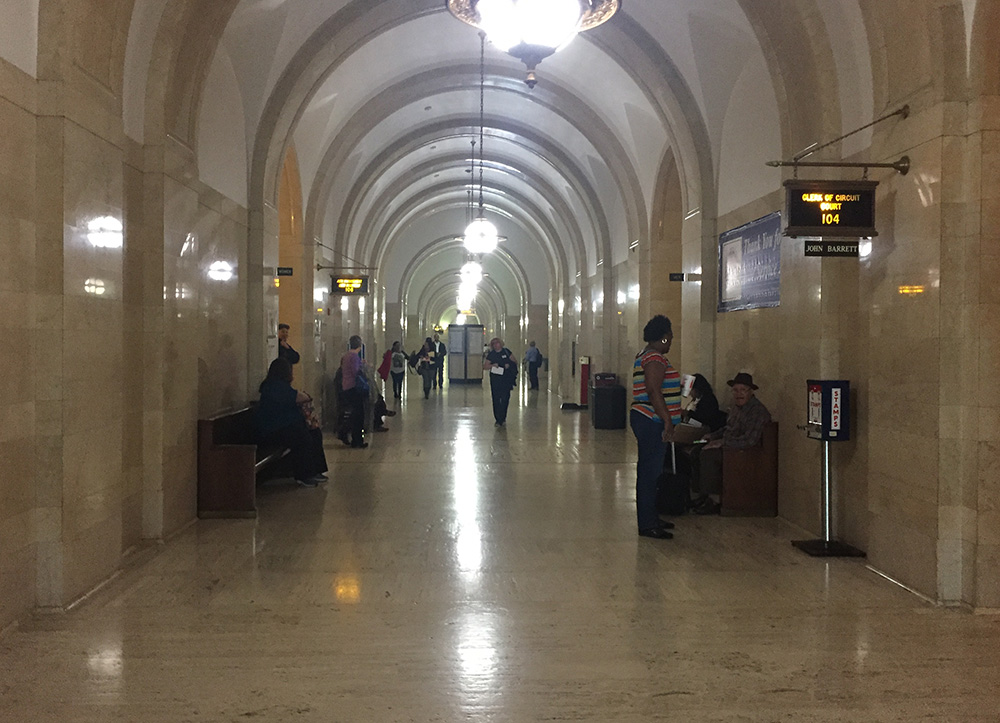Assembly Passes Bill To Protect Judges’ Privacy
Proponents say it protects judge's when at home, opponents say it limits free speech.
Assembly lawmakers passed three bills on Thursday aimed at protecting judges’ privacy. The bills come at the request of the state Supreme Court and following threats of violence against judges in recent years.
One bipartisan bill would make it a Class A misdemeanor to picket, parade or demonstrate at or near the residence of a judge with the intent of interfering with or obstructing or impeding the administration of justice or with the intent to influence any judge in the discharge of his or her duty. It would hold a penalty of a fine of up to $10,000 or up to nine months in prison.
“We still, of course, have the right to a robust public protest policy where people have the right to express their views and all those kind of things, but the idea of trying to make people’s personal information as something that can be used for threats or having protests at people’s homes, probably goes a bit too far,” Assembly Speaker Robin Vos (R-Rochester) said at a press conference.
According to the Wisconsin Supreme Court Marshal’s Office, there have been 142 threats made against judges and justices in the state in the last year.
Some Democrats voiced their opposition to the bill during floor debate, saying that they were afraid that it could limit people’s First Amendment rights.
“I know that, as somebody who has been the recipient of many death threats myself, that the intent of this legislation is good. It is to protect judges. The effect of this will not be. The effect of this will be to chill First Amendment protected speech,” Rep. Ryan Clancy said (D-Milwaukee).
Clancy recalled protests that happened in Milwaukee and across the state in 2020 following the murder of George Floyd, saying that one chant that was repeated during marches was ‘‘Indict convicts and send those killer cops to jail. The whole damn system is guilty as hell.”
“[The chant] was not just aimed at residents. It was aimed at police. It was aimed at judges. What this bill would do is make those mass protests illegal,” Clancy said.
Rep. Supreme Moore Omokunde (D-Milwaukee) said he never thought protesting outside of a public official’s home was a good strategy, but added that in the rare instance when that agitation leads to negotiation then the tactic should still be available.
Rep. Ron Tusler (R-Harrison), who co-authored the bill, chastised Democrats who said they wouldn’t vote for the bill.
“You’re telling me the only way you can protest is to go to someone’s house?… That’s the answer? That’s ridiculous… This just protects them at their home, this doesn’t protect them at the courthouse,” Tusler said. He also brought up former Juneau County Circuit Court Judge John Roemer, who was shot and killed in 2022 at his home by a man he had sentenced to six years in prison.
“This guy comes into [Roemer’s] house, zip ties him, executes him,” Tusler said. “You don’t think our judges deserve a little bit of security?”
Another bill would establish privacy protections for judicial officers and a way for them to request that personal information not be published about them and their families. The final bill would exempt a judicial security profile form from disclosure under public records law. Both bills passed in a voice votes.
Assembly passes bills to protect judges’ privacy was originally published by Wisconsin Examiner.




















With the threats made to elected officials, judges, and their families, this legislation is reasonable and needed. Often very aggressive protecting can often draw bad actors or become a mob which may lead to harm to individuals or property damage.
Protesting is one thing. Breaking into a house and trying to kill people is another thing.
Zero idea what Tusler is going on about.